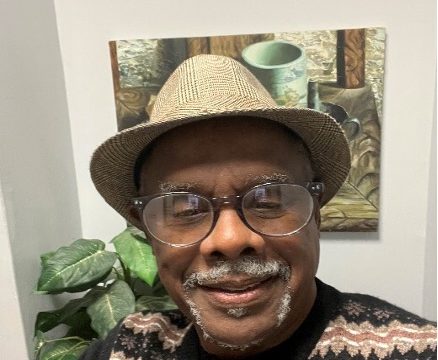
When my good friend Butch asked about my plans for the Dr. Martin Luther King, Jr. annual birthday celebration and, a few weeks afterwards, African American History Month, I paused before answering.
Why? Well since I fit the definition of someone needing something actionable and impactful to get my attention, I did not want to trot out the traditional activities – church service, speeches, parades, etc., that I had, to be honest, lukewarm interest in this year.
Now don’t get me wrong or call me a sellout because these things remain important, but it would have been disingenuous of me to say that those activities were my paramount interests this year given times like no other that we live in today. Part of the hesitation is my recollection of spikes in acts of hate and overall deterioration of progress made since last year’s celebrations, let alone during the years and decades before that.
But as coincidence would have it, while sitting comfortably on my son’s couch in California awaiting a NFL playoff game, I dialed in remotely to the King celebration at his hometown church, Atlanta’s Ebenezer Baptist Church, hopeful that I’d see or hear something new, motivational and actionable.
Now given the event, the church itself, and the presence of members of the King family, the church was jam packed with black, brown and white faces, well dressed folks old and young. On the dais sat local dignitaries, politicians and speakers. As expected, the gospel music was rousing and spot on as were the speakers who took their turn at the lectern.
But before I tell you about my “Liz Chaney?” moment during the service, bear with me as I walk you through some of my personal observations and, yes, cynicism – about King celebrations and African American History Month as they have been traditionally celebrated.
As I scanned the audience, I thought about the “Easter-only” crowd, the folks in my hometown who’d show up decked out in their Sunday best on Easter Sunday, not to be seen or heard from again until next Easter.
Looking out at the Ebenezer audience, I wondered about the “see ya next year” crowd, those there for photo ops, selfies and their once a year “be chummy with Black folks” opportunity. Some seemed uncomfortably out of rhythm and looked lost during the singing of “Lift Every Voice,” the Black National Anthem. And yes, I’m sure that there were a few “once a year Easter Sunday” brothers and sisters there to fist bump and be, as we sometimes say, “sho nuff Black,” at least for a day.
Undeniably, there were folks present who dropped a few bucks in the offering plate and after service avoided eye contact with homeless people on the sidewalk as they climbed into BMWs and retreated back to their gated neighborhoods, plush workplaces and segregated places of worship.
This takes the Ebenezer service to one Liz Chaney – yes, Liz Chaney, Dick’s daughter, who co-chaired the congressional committee that investigated the January 6th insurrection at our nation’s capital.
After thanking Dr. King’s daughter, Reverend Bernice King, for her invitation to speak and acknowledging the significance of Dr. King and the church in the Civil Rights movement, Chaney sounded the alarm and did not mince words while stressing the critical historical nature of the upcoming election for president.
“This is the most significant church in our nation,” she began to a captive audience of “amens” and applauses. After citing seminal moments in our history – among them Dr. King’s famous ‘Letter from a Birmingham Jail’ and his speech at the foot of the Alabama state Capitol where he proclaimed, ‘no lie can live forever,” she pivoted by name to the proverbial ‘elephant in the room,’ ex-president and current leader in the race for the Republican nomination, one Donald J. Trump and his, in her words, threat to the foundation of our nation.
“We have a great need to call out the great lie that’s doing its work in poisoning our democracy. But we must not let them prevail. Unfortunately many faith leaders preach from the pulpit an admiration of a violent man who attacks our rule of law. But we all must stand together against all divisions.”
She then took her seat amid a thunderous ovation and hugs from fellow speakers on stage.
So what do we do once we leave the celebrations, after we turn to the NFL playoff game? What do we do during the interim – the 12 months and 365 days – before we meet again this time next year?
Well, at a minimum we should remember that Dr. King, John Lewis, Medgar Evers and scores of others sacrificed their lives for our right to vote.
Liz Chaney drove home the critical nature and importance of that privilege and that responsibility.
© Terry Howard is an award-winning trainer, writer, and storyteller. He is a contributing writer with the Chattanooga News Chronicle, The American Diversity Report, The Douglas County Sentinel, Blackmarket.com, co-founder of the “26 Tiny Paint Brushes” writers’ guild, recipient of the 2019 Dr. Martin Luther King, Jr. Leadership Award, and third place winner of the 2022 Georgia Press Award.


